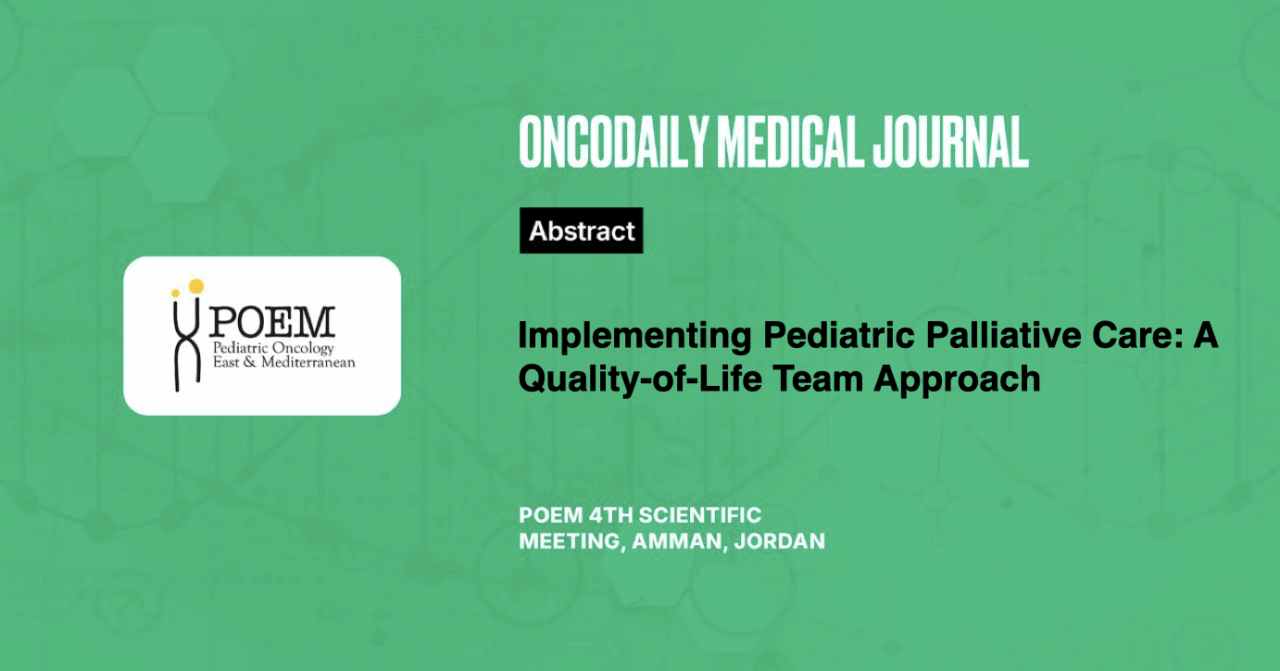Implementing Pediatric Palliative Care: A Quality-of-Life Team Approach
Abstract
Introduction: Palliative care, recognized as a fundamental human right, aims to improve the quality of life for patients and their families facing life-threatening illnesses. While crucial, pediatric palliative care remains underdeveloped in many low- and middle-income countries. Effective palliative care necessitates a holistic, multidisciplinary approach, integrating family support and community resources. This abstract describes the initial experience of a newly established palliative care team at Shefa Al-Orman Children’s Cancer Hospital in providing comprehensive services to children with refractory or relapsed cancer.
Methodology: A multidisciplinary quality-of-life team comprising an oncologist, nurse, anesthesiologist, and psychologist initiated palliative care services in late September 2024. These services included inpatient ward assessments, outpatient clinic visits, psychological evaluations, rehabilitation, and group activities.
Results: We have provided services to 20 patients aged 3 to 22 years (12 male, 8 female), all of whom had refractory or relapsed cancer. Seven patients reported pain, with two requiring narcotics. Patients underwent regular psychological assessments, and two received oral antidepressants. Group activities improved our palliative care patients’ quality of life by 28.8%.
Conclusion: This study demonstrates the feasibility of implementing a comprehensive palliative care program for children with refractory or relapsed cancer, even in resource-limited settings. The observed improvement in quality of life highlights the importance of a multidisciplinary approach that includes psychological support and group activities. Further research is needed to optimize pain management strategies and expand access to palliative care services for all children in need.





